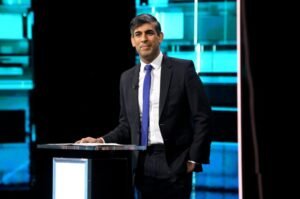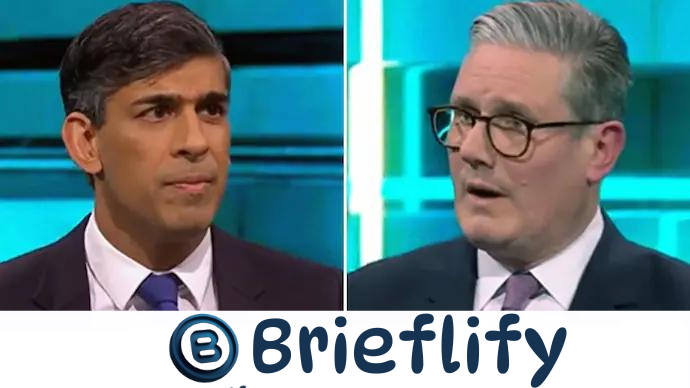In a highly anticipated and vigorously contested first debate, Prime Minister Rishi Sunak and opposition leader Sir Keir Starmer faced off, with tax policy taking center stage. The debate, a critical moment ahead of the upcoming general elections, showcased stark contrasts between the Conservative and Labour approaches to economic and fiscal management.
The event, held at a packed venue in London and broadcast live across the nation, began with both leaders outlining their visions for the UK’s future. Prime Minister Sunak emphasized the need for economic stability and growth, proposing tax policies aimed at incentivizing businesses and fostering a pro-investment climate. Conversely, Sir Keir Starmer advocated for a more equitable tax system, focusing on lifting the financial burden on the middle and working classes.
The core of the debate centered around the differing tax strategies proposed by the two leaders. Sunak defended his government’s approach, highlighting recent tax cuts for businesses as essential for job creation and economic recovery post-pandemic. He argued that lower corporate taxes would attract foreign investment and ultimately benefit all sectors of society through increased employment and wages.
Starmer, on the other hand, criticized the Conservative government for what he described as “tax breaks for the wealthy and corporations at the expense of public services and the average British family.” He outlined Labour’s plan to raise taxes on the wealthiest individuals and most profitable corporations to fund improvements in healthcare, education, and public infrastructure.
The debate also touched on the impact of tax policies on public services. Starmer accused the Conservative leadership of underfunding critical services, leading to longer wait times in the NHS, declining educational standards, and increased crime rates. He pledged that a Labour government would reverse these trends by using increased tax revenues from the rich to invest in the nation’s social infrastructure.

Sunak countered by accusing Labour of planning to lead the country into a spiral of increased taxation and public spending that would discourage investment and lead to economic stagnation. He stressed that efficient government spending, rather than increased taxation, was the key to improving public services without harming the economy.
Throughout the debate, both leaders faced tough questions about how they would handle ongoing economic challenges, including inflation, housing affordability, and unemployment. Sunak pointed to his track record, claiming that conservative policies had led to a robust recovery from the economic downturn caused by the COVID-19 pandemic. He promised to continue with policies aimed at economic prudence and fiscal responsibility.
Starmer, however, argued that the recovery had been uneven, benefiting those at the top while leaving behind ordinary workers and families. He emphasized the need for a fairer economic system that ensures everyone benefits from the country’s prosperity.
The debate drew mixed reactions from the public and experts alike. Some viewers appreciated Sunak’s focus on economic growth and stability, while others found Starmer’s emphasis on social equity and fairness more compelling. Political analysts noted that the debate likely reinforced existing partisan divides, with supporters on each side finding reasons to feel vindicated by their leader’s performance.
The debate set the stage for what promises to be a heated and polarized election campaign. As voters continue to digest the positions and promises laid out by Sunak and Starmer, the issues of tax policy and economic management are expected to remain at the forefront of the national discourse.
In the coming weeks, both leaders will need to refine their messages and strategies as they attempt to sway an increasingly polarized electorate. With the stakes high and the country at a crossroads, the direction of UK tax policy and economic management hangs in the balance, dependent on the outcome of what is shaping up to be one of the most consequential elections in recent history.

